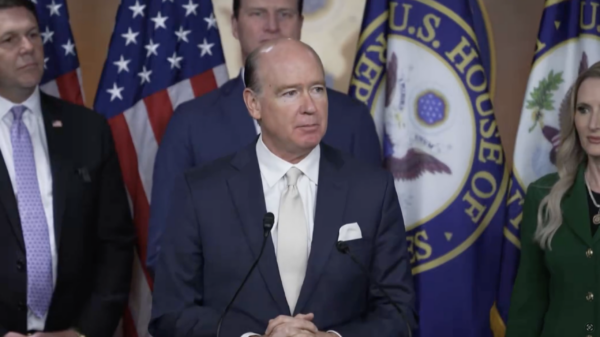By Brandon Moseley
Alabama Political Reporter
On Thursday, the U.S. House of Representatives voted to reject the farm bill, the Federal Agriculture Reform and Risk Management Act (H.R. 1947), by a 195-234 vote. Democrats objected to cuts to the food stamp program and some Republicans thought there were not enough food stamp cuts in the bill which would have set agriculture policy for the next decade.
Congresswoman Martha Roby (R) from Montgomery said in a written statement, “The spenders won. They dodged a major reform to the unrestrained government spending policies left over from the Pelosi Congress. For more than two years we’ve been working on a new Farm Bill that would meet this country’s agricultural and economic needs while enacting long-needed reforms to farm and food stamp policy. While not perfect, the Farm Bill that died today represents a missed opportunity to save taxpayers $40 billion through responsible improvements to current law. Now, with no Farm Bill, costly programs like food stamps will continue with no savings at all, and that’s a shame.”
Representative Roby is a member of the House Agricultural Committee and was a strong proponent of H.R. 1947.
Alabama Farmers Federation President Jimmy Parnell said in a written statement, “Farmers cannot effectively plan for the future because they don’t know how regulations and programs will impact their crops. The farm bill approved by the House Agriculture Committee was a balanced approach that cut $40 billion in spending over 10 years while protecting farmers. It is disappointing House Democrats voted to kill the bill because it attempted to rein in food stamp spending.”
Republican Representatives Robert Aderholt from Haleyville, Spencer Bachus from Vestavia, Jo Bonner from Mobile, Mo Brooks from Huntsville, Martha Roby from Montgomery and Mike Rogers from Saks all voted for the bill. Rep. Terri Sewell (D) from Selma voted against the bill.
The Federal Agriculture Reform and Risk Management Act would have enhanced crop insurance programs, eliminated direct program payments to farmers, limited enrollment of land in the Conservation Reserve Program (CRP) and ended cash payments for idling the best land. The bill also cut about $20 billion from the Supplemental Nutrition Assistance Program (SNAP) or food stamps. President Parnell said,
“We appreciate members of the state’s congressional delegation who stood with Alabama farmers and voted ‘yes”. While some Republican members of Congress would like to see greater reforms to food stamps, they understand Alabama farmers need the certainty of a farm bill. Unfortunately, the White House and Democratic leadership in the House of Representatives would rather kill the farm bill than accept common sense reforms to food stamps.”
Rep. Roby has championed food stamp reforms. The bill (if it had passed) would have: prevented illegal aliens from obtaining food stamps; eliminated a loophole and reinstated asset and income tests for food stamps (SNAP); prevented the federal and state governments from actively recruiting new food stamp recipients through TV, radio and billboard ads; demanded outcomes from employment and training services; and eliminated “double dipping” where food stamp recipients collect benefits in multiple states.
The 2008 farm bill expired in 2012 and it is expected that that farm bill will simply be renewed for another year, keeping food stamps at current record high levels.





















































